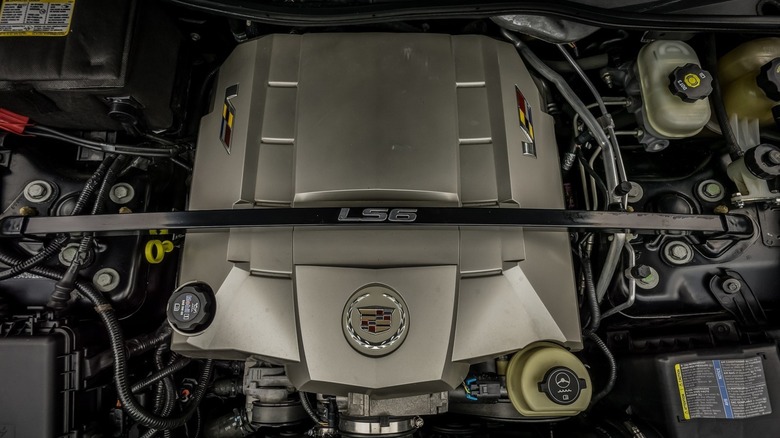LS6 Engines: Which Cars Came Equipped With Them & Why They Were Replaced
General Motors has always had a stable footing in the automotive industry, but its small-block engines, particularly the many generations of LS engines, gained a cult following. And it's pretty clear why many think LS engines are so special. They're powerful, durable, reliable, easy to service, and cheaper to tune, but none are more infamous than the LS6.
The story of GM's LS6 is interesting. The engine didn't inherently do anything wrong. It just wasn't around for very long. The LS6 debuted in 2001 as an upgraded, high-performance version of the LS1. The engines shared a few characteristics, like the small-block design and displacement. However, despite their similarities, there were some key differences between the LS1 and LS6. Given that the LS6 was a high-performance upgrade, it was more powerful, offering 385 horsepower, which GM eventually raised to 405 hp with 400 lb-ft of torque.
During its heyday, GM put the LS6 in a few vehicles. Emphasis on "few" because it was only in two cars: the 2001-2004 Chevrolet Corvette C5 Z06 and the 2004-2005 Cadillac CTS-V. The 2001 C5 Z06 featured the original LS6 with 385 hp and 385 lb-ft torque at 4,800 RPM. The models from 2002 to 2004 received the upgraded 405 hp engine. Similarly, the CTS-V had an LS6 with 400 hp and 395 lb-ft of torque at 4,800 RPM.
What happened to the LS6?
Every engine sees the day when a younger, stronger replacement comes into the picture. Unfortunately for the LS6, that day came much sooner than usual. By 2006, General Motors moved on to the LS7 for the Chevrolet Corvette Z06 and replaced the Cadillac CTS-V's engine with an upgraded LS2. So, why were they replaced?
The simple answer is that General Motors was at the limits of what it could do with the LS6. The goal with most engines is to improve the horsepower and to do so with the LS6, there were only two options: increase the engine size or the RPM. With the upgrade from the LS1 to the LS6, General Motors had already reached the limits of the small-block engine's torque, so the only logical step was to make a bigger engine.
Enter the LS7, the next installment of GM's V8 small-block engine family. The new 7-liter engine produced 505 horsepower at 6,800 rpm and 470 lb-ft of torque at 4,800 rpm, drastically improving on the LS6's performance numbers. Subsequently, Corvette Z06s from 2006 to 2013 featured the LS7 engine.
Similarly, GM elected to go with a torque upgrade to the Cadillac CTS-V via an upgraded LS2 engine, producing 400 hp at 6,000 rpm and 400 lb-ft of torque at 4,400 rpm. The LS2 was in 2006 and 2007 models of the CTS-V.

